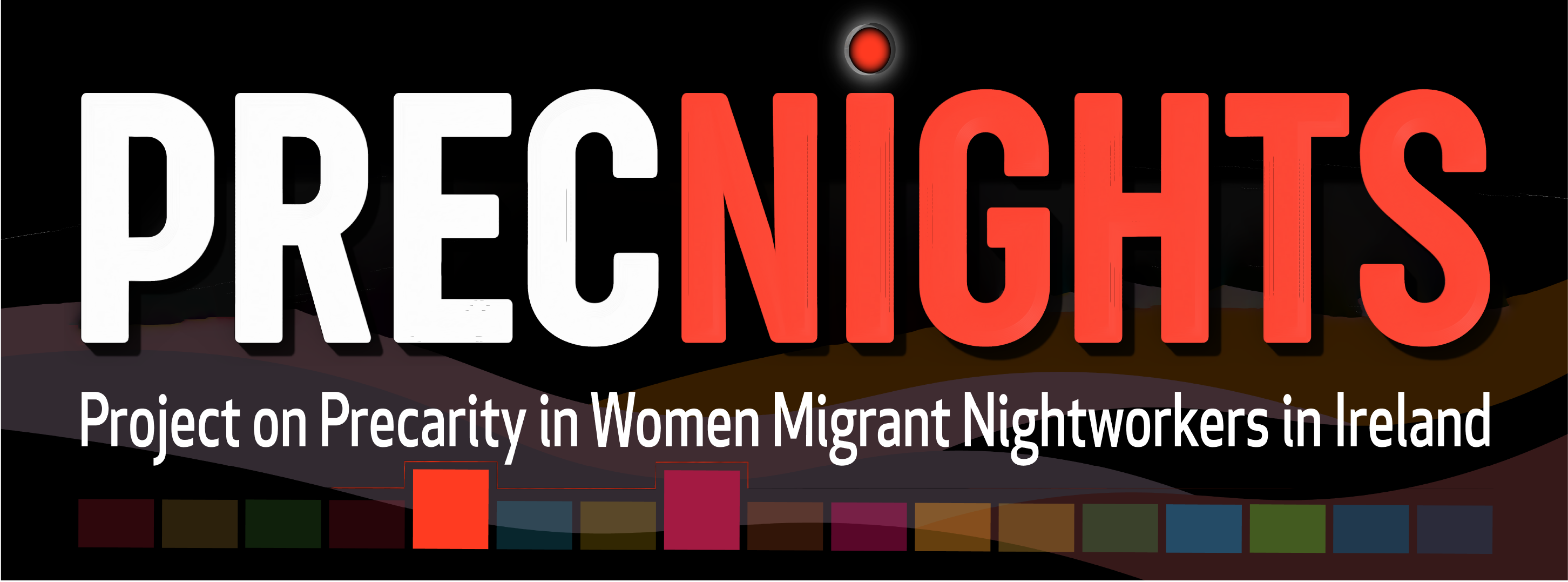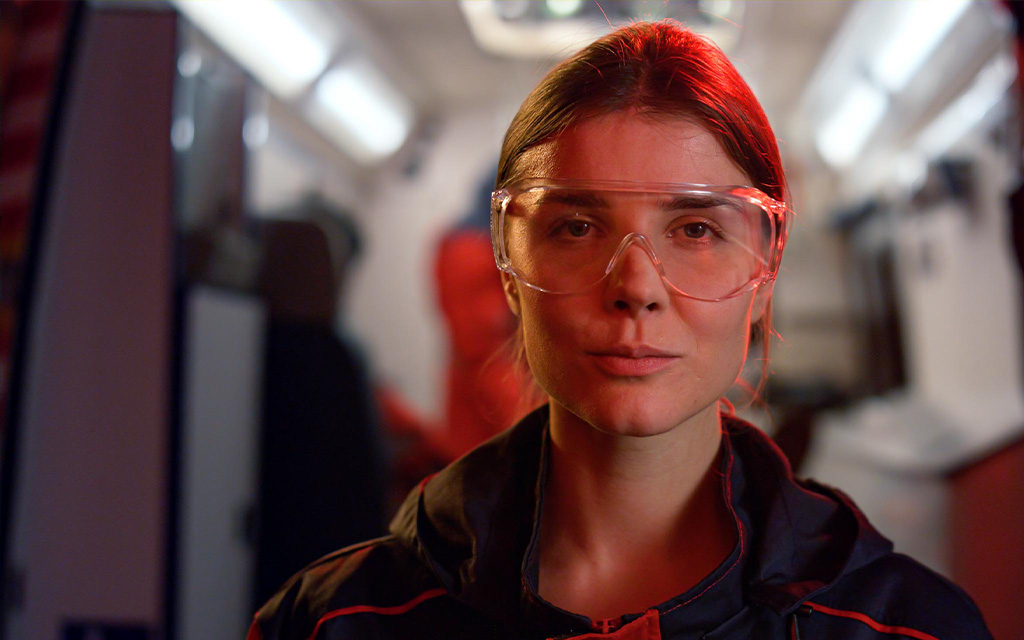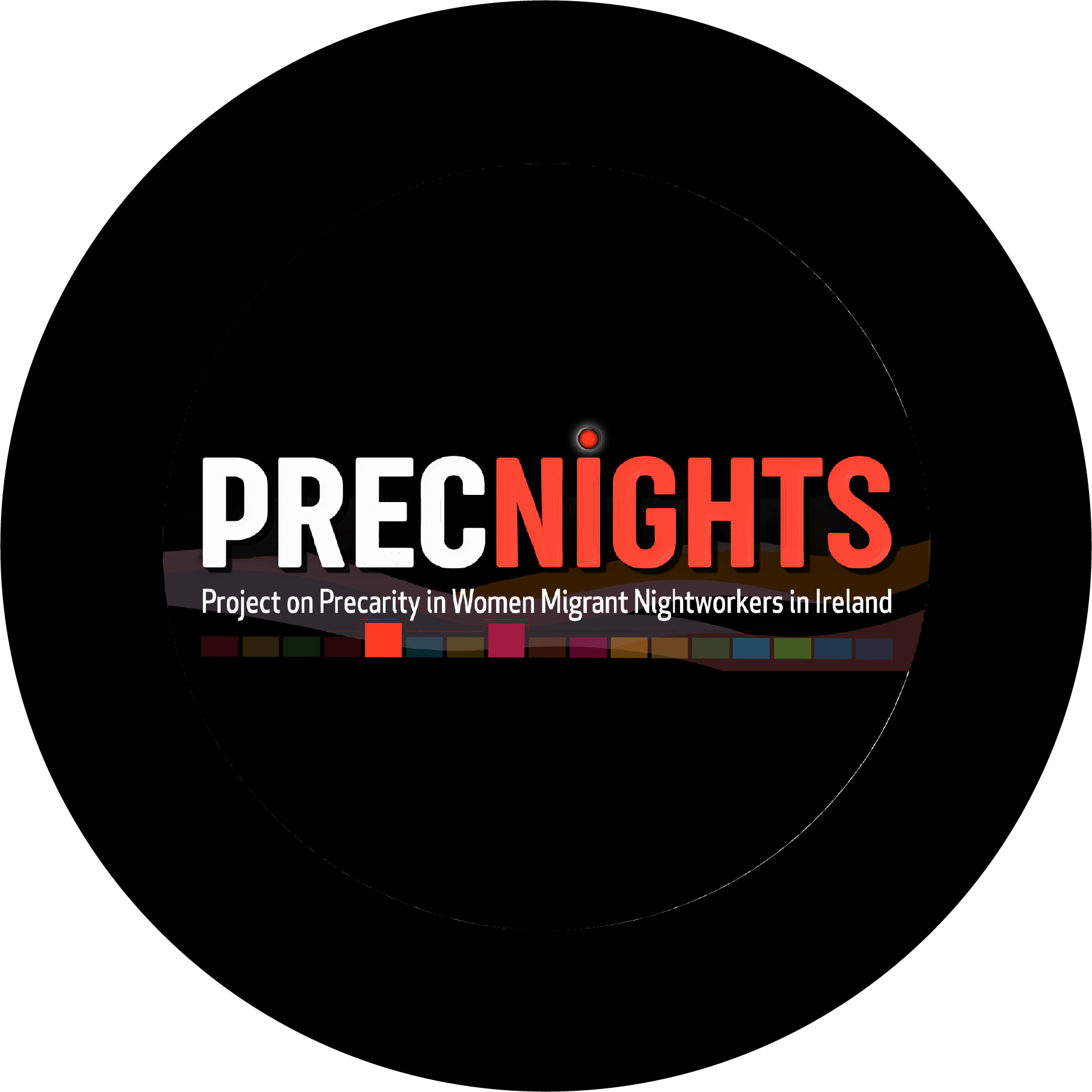What we do
PRECNIGHTS is the acronym for Precarity Amongst Women Migrant Nightworkers in Ireland. PRECNIGHTS is a pioneering project in the field of research on the hidden experiences of Women Migrant Nightworkers (WMN).
Thematically, PRECNIGHTS adopts intersectional lens to look at several dimensions of these WMN's experiences, such as:
- Identity: Who do they need to identify with and what identifies them?
- Language: Do they use mostly the mother tongue or the language from their country of origin? or the language in the country where they work and live in? Perhaps the language of their partners (if/when other ethnicity or nationality)? Or perhaps they use a language that they feel more attuned culturally to?
- Ethnicity: Which groups do they associate with? Diaspora groups or people still living in their home country? Or is it by association with their workplace at night?
- Gender: How or do they perform masculinised behaviours and norms in order to be accepted, treated equally to males? And in what kind of encoutners are these revealed?
Methodology:
Nightnography is the main method used in this research. Nightnography is a portmanteu for night and ethnography*.
It consists of mixed methods to capture bodily and cyber-ethnographic representations and visual-analytical tools to capture the hidden experiences of WMN, which combines the following instruments:
- i) night walking (with or without interviewing);
- ii) bodily notetaking (Stratham 1996; Wacquant 2015);
- iii) informal and genuine conversations with participants (Jansen and Driessen 2013);
- iv) interviews and focus groups, which are
- v) audio-video (A-V) recorded.
PRECNIGHTS communicates results to the end-users via graphic illustrations, short-film projections to reach out to mixed audiences. The purpose is to meet the open-science objectives designed to engage in public debates from bottom-up.
PRECNIGHTS produces short analysis pieces for platforms like RTÉ Brainstorm and The Conversation, and academic publications, reports and policy documents for specialised as well as mixed audiences.
*Ethnography is in-person observation, and the preferred method in anthropology. The researcher is at times an observer and at others a participant.
Profile: Joana
Joana's story in case speaks volumes for women who are de-skilled in manual jobs




